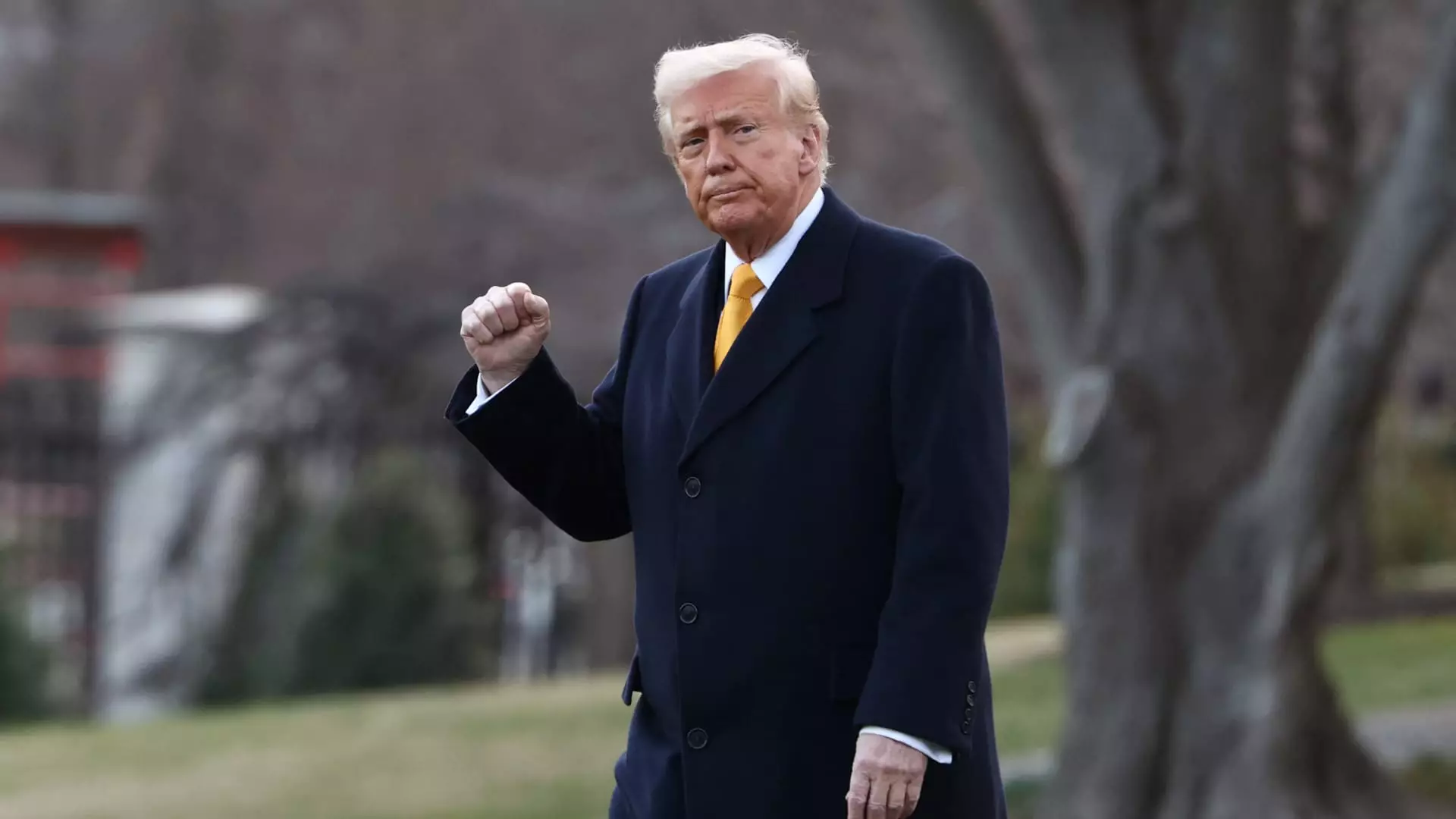In a shocking turn of events, President Donald Trump is reportedly poised to take drastic measures that could shake the very foundations of the U.S. educational framework. The expected signing of an executive order on Thursday seeks to disband the U.S. Department of Education, an entity that oversees a staggering $1.6 trillion in federal student loans. This radical approach not only raises eyebrows but sends shivers down the spines of the over 40 million Americans burdened with these loans. The thought of dismantling such an essential agency raises pressing questions: What consequences could result from this upheaval?
As a centrist liberal, it’s disheartening to witness a government action that threatens the stability and welfare of students across America. Congress is the only body capable of eliminating the Department of Education entirely; however, the administration’s potential to deprive it of resources sets a dangerous precedent. Just this month, nearly 50% of the department’s staff was terminated—a move that leaves it limping along with just over 2,000 employees. This staggering reduction in personnel compromises the agency’s ability to function effectively, spelling doom for millions seeking relief from their educational debt.
Who Will Manage the Student Loans?
The proposed shift in oversight raises a critical question: if the Education Department is stripped of its responsibilities, who will rightfully “inherit” federal student loan management? President Trump has mentioned the possibility of transferring these functions to the Treasury Department, the Commerce Department, or the Small Business Administration. However, experts argue that only the Treasury has existing mechanisms for managing debt collection.
Introducing new overseers for student loans is not merely an administrative shift—it’s a recipe for chaos. While the Treasury Department holds some familiarity with financial matters, neither the Commerce Department nor the SBA possess relevant expertise in the education sector. This change could lead to a tempestuous mismanagement of loans and borrower services at a time when clarity and support are sorely needed.
The Timing Couldn’t Be Worse
Consumer advocates are rightfully alarmed, as this change arrives after a series of court rulings that have hindered the Biden administration’s efforts at federal loan forgiveness and affordable repayment plans. With students already grappling with confusion and anguish over their financial depredations, the last thing they require is further uncertainty. If the Education Department is dialed down to operate at half capacity, the processing of loan forgiveness applications is likely to stall. Many borrowers struggle under the weight of repayments; without timely aid, the repercussions could be catastrophic.
Experts like Mark Kantrowitz highlight the importance of the Education Department’s role in approving loan forgiveness initiatives. Without this final approval from an established agency, borrowers risk being stranded with no actionable path toward relief.
Borrowers’ Rights Under Threat
The implications of these changes extend beyond logistical confusion. The rights of borrowers—guaranteed when they signed their master promissory notes—may inadvertently become jeopardized during this transition. Although the specific terms of student loans cannot simply vanish due to an administrative change, the uncertainty of who will be responsible for managing these loans poses a serious threat to borrowers’ rights and peace of mind.
Amid this tumult, voices from within the education sector are raising alarm bells. Michele Shepard Zampini, a senior director at The Institute For College Access and Success, has candidly stated that the chaos stemming from such a transition could devastate both the educational environment and the lives of countless borrowers.
The Broader Implications for American Society
One cannot ignore the broader societal implications of dismantling a pivotal agency like the Department of Education. The act signals a troubling ideological shift toward a downplayed role of government in managing public goods—a dangerous trend that can hinder the accessibility of education for future generations. While conservative arguments often praise smaller government, the consequences here may prove to be a costly experiment, eroding the lifelines that millions depend upon for upward mobility and educational advancement.
The potential fallout urges all citizens, regardless of political alignment, to engage deeply with the consequences of such unilateral executive actions. Scrutinizing the implications of diminishing the tools designed to promote educational equity is not merely an exercise in political philosophy; it is a necessity for preserving the very fabric of opportunity in American society. The responsibility rests not just with policymakers but with every individual who recognizes the value of an educated populace as the cornerstone of a resilient democracy.

Leave a Reply